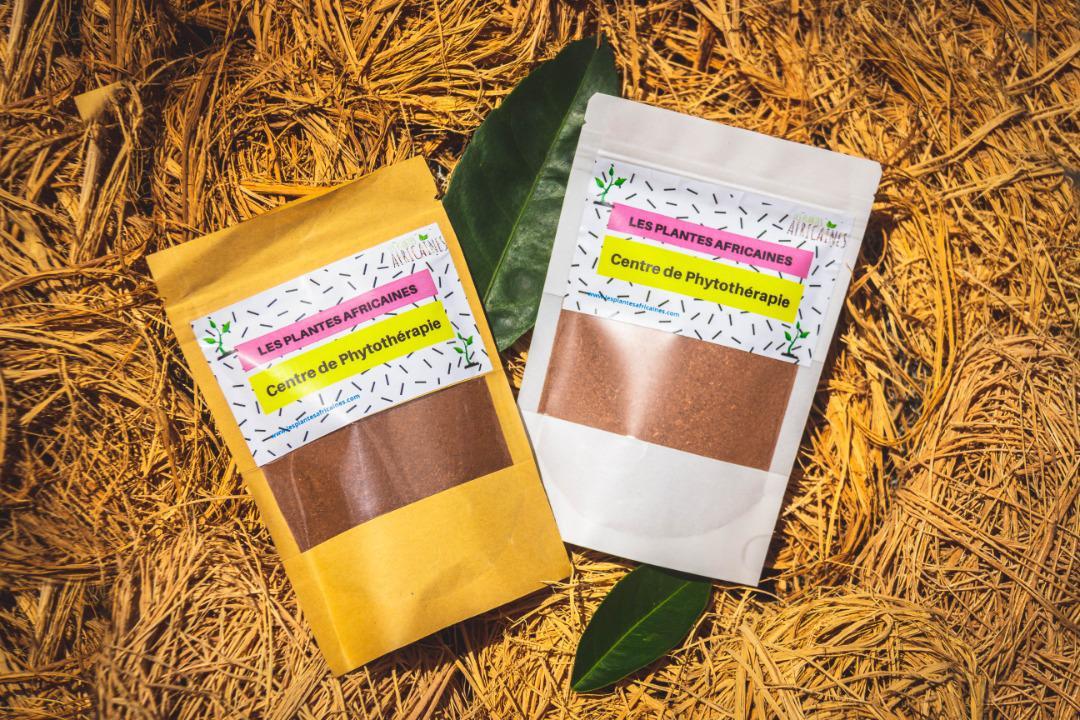Order it now and start early the natural treatment. Support is provided throughout the entire duration of your care. To contact us, click on the WhatsApp button in the top right corner of the screen or contact us at +33777309072.
We are represented in all African countries and are actively present in France, Cameroon, Côte d'Ivoire, Mali, Senegal, Burkina Faso, Togo, Kenya, Nigeria, Gabon, Central African Republic, Benin, Chad, Congo-Brazzaville, and Kinshasa. Rest assured that you will receive your products immediately after placing your order.
Delivery is free worldwide.
Natural treatment to cure polymyositis
Polymyositis or dermatomyositis is a rare inflammatory disease that leads to weakening of the body's muscles, making difficult movements such as climbing stairs, standing up, or lifting objects challenging. It is more common in adults between 30 and 50 years old and appears more frequently in women. Symptoms develop gradually over time, over several weeks or months. Symptoms can include: muscle weakness, especially in the thighs, hips, shoulders, arms, and neck; worsening over time. The cause is unknown but appears to be a type of autoimmune disease, in which the immune system attacks the body's own cells.
Here is a highly effective natural remedy to permanently cure polymyositis and improve muscle strength. This natural treatment reduces inflammation and pain in musculoskeletal disorders (rheumatoid arthritis, polymyositis, osteoarthritis, cervical spondylosis, gout, myositis, fibromyalgia, carpal tunnel, tendinitis, bursitis, torticollis - neck muscle contracture) by reducing the action of the 5-LOX enzyme of leukotrienes involved in inflammation, autoimmune reactions, cancer, and plaque formation. It increases joint mobility and contributes to the synthesis of glucosamine sulfate and hyaluronic acid. The earlier the treatment is started, the more effective it is, resulting in fewer complications. However, as with many conditions, no single approach is the best. Our doctor will adapt the treatment strategy based on your symptoms and their response to therapy.
Rest assured! Polymyositis generally responds well to natural treatment, and residual muscle weakness disappears in 95% of cases. Negative prognostic factors predicting a decline in disease outcome include: advanced age, interstitial lung disease, associated neoplasm, heart or lung involvement, female sex, and late treatment. Our physiotherapist will show you exercises to maintain and improve your strength and flexibility and advise you on an appropriate activity level.
Click here to contact us and order
To discover the best exercises against polymyositis, click here.
Order it now and start early the natural treatment. Support is provided throughout the entire duration of your care. To contact us, click on the WhatsApp button in the top right corner of the screen or contact us at +33777309072.
We are represented in all African countries and are actively present in France, Cameroon, Côte d'Ivoire, Mali, Senegal, Burkina Faso, Togo, Kenya, Nigeria, Gabon, Central African Republic, Benin, Chad, Congo-Brazzaville, and Kinshasa. Rest assured that you will receive your products immediately after placing your order.
Delivery is free worldwide.
What is polymyositis?
Polymyositis is a disease involving chronic inflammation of skeletal muscle. The exact cause is unknown (idiopathic), but it has many features related to autoimmune diseases. In the same category are dermatomyositis and myositis. The disease causes muscle weakness affecting both sides of the body. This condition can make climbing stairs, standing up from a seated position, or lifting objects difficult.
Polymyositis most often affects adults in their 30s, 40s, or 50s. Women are more often affected than men. Signs and symptoms usually appear gradually over weeks or months. Treatment with medication and physical therapy can improve muscle strength and function.
Classification of idiopathic inflammatory myopathies
- Primary idiopathic polymyositis;
- Primary idiopathic dermatomyositis;
- Polymyositis or dermatomyositis associated with malignancy;
- Juvenile polymyositis or dermatomyositis;
- Polymyositis or dermatomyositis associated with another connective tissue disease;
- Inclusive body myositis;
- Miscellaneous (e.g., eosinophilic myositis, ossifying myositis, focal myositis, giant cell myositis).
Also available: Popular remedies for myositis (polymyositis and dermatomyositis)
Click here to contact us and order
Symptoms of polymyositis
The dominant feature of this pathology is symmetrical proximal muscle weakness accompanied by muscle wasting of the girdles (shoulder, pelvic), characterized by difficulty lifting the hands and flexing the thigh toward the abdomen. Head muscles can also be affected, making it impossible to maintain an upright head position. Onset can be acute, with fever, arthralgia (joint pain), muscle pain, or insidious and slow, progressing with muscle atrophy and weight loss.
Although lung disease is one of the most common extra-muscular manifestations, it is a negative prognostic factor. Dyspnea (breathing effort perceived by the patient) and cough often mask interstitial lung disease, leading to pulmonary fibrosis with pulmonary hypertension (PH).
Swallowing difficulties may also occur, affecting esophageal muscles, along with abdominal pain due to vasculitis of digestive vessels. Polymyositis is very rarely associated with cardiac rhythm disorders, varying degrees of atrioventricular block, tachyarrhythmias, and congestive heart failure.
Diagnosis of polymyositis
The diagnosis of the disease is a collaboration between clinical evaluation, laboratory results, and histopathological examination.
If your doctor suspects polymyositis, they may suggest some of the following tests:
- Blood test: Measures muscle enzymes to detect muscle damage and autoantibodies associated with polymyositis, helping guide medication and treatment. Shows elevated creatine kinase (CK) up to 10 times normal, and acute phase reactants (ESR, CRP, fibrinogen);
- Electromyography (EMG): Insertion of a fine needle electrode into muscles to measure electrical activity at rest or contraction, confirming muscle disease and distribution;
- Magnetic Resonance Imaging (MRI): Produces cross-sectional images of muscles using a magnetic field and radio waves. Unlike muscle biopsy, MRI evaluates inflammation over a large muscle area;
- Muscle biopsy: Surgical removal of a small muscle tissue sample for lab analysis to reveal inflammation, damage, certain proteins, or enzyme deficiencies.
Also available: Different forms of polymyositis and natural treatment for polymyositis
Treatment of polymyositis
Treatment can improve muscle strength and function. The earlier the treatment is started, the more effective it is, resulting in fewer complications. However, as with many conditions, no single approach is best; the doctor will tailor the treatment strategy according to your symptoms and their response.
Click here to contact us and order
Medications
The most commonly used medications for polymyositis include:
- Corticosteroids: Drugs like prednisone can be very effective in controlling symptoms, but long-term use may cause serious side effects. Doctors may gradually reduce doses. Commonly used drugs include azathioprine and methotrexate. Other options include mycophenolate mofetil (CellCept), cyclosporine, and tacrolimus;
- Rituximab: Often used for rheumatoid arthritis, this is an option if initial treatment does not adequately control polymyositis symptoms.
Therapies
Depending on symptom severity, your doctor may suggest:
- Physical therapy: A physiotherapist can show exercises to maintain and improve strength and flexibility and advise an appropriate activity level;
- Speech therapy: Helps compensate if swallowing muscles are weakened;
- Dietary evaluation: Helps prepare easy-to-eat and nutritious foods if chewing and swallowing become difficult;
- Intravenous immunoglobulins (IVIg): Purified blood products containing healthy antibodies from thousands of donors to block harmful antibodies attacking muscles, administered via IV infusion regularly for lasting effects.
Polymyositis generally responds well to treatment, although residual muscle weakness persists in 30% of cases. Negative prognostic factors include advanced age, interstitial lung disease, associated neoplasm, heart or lung involvement, female sex, and late treatment.
Order it now and start early the natural treatment. Support is provided throughout the entire duration of your care. To contact us, click on the WhatsApp button in the top right corner of the screen or contact us at +33777309072.
We are represented in all African countries and are actively present in France, Cameroon, Côte d'Ivoire, Mali, Senegal, Burkina Faso, Togo, Kenya, Nigeria, Gabon, Central African Republic, Benin, Chad, Congo-Brazzaville, and Kinshasa. Rest assured that you will receive your products immediately after placing your order.
Delivery is free worldwide.
Click here to contact us and order

